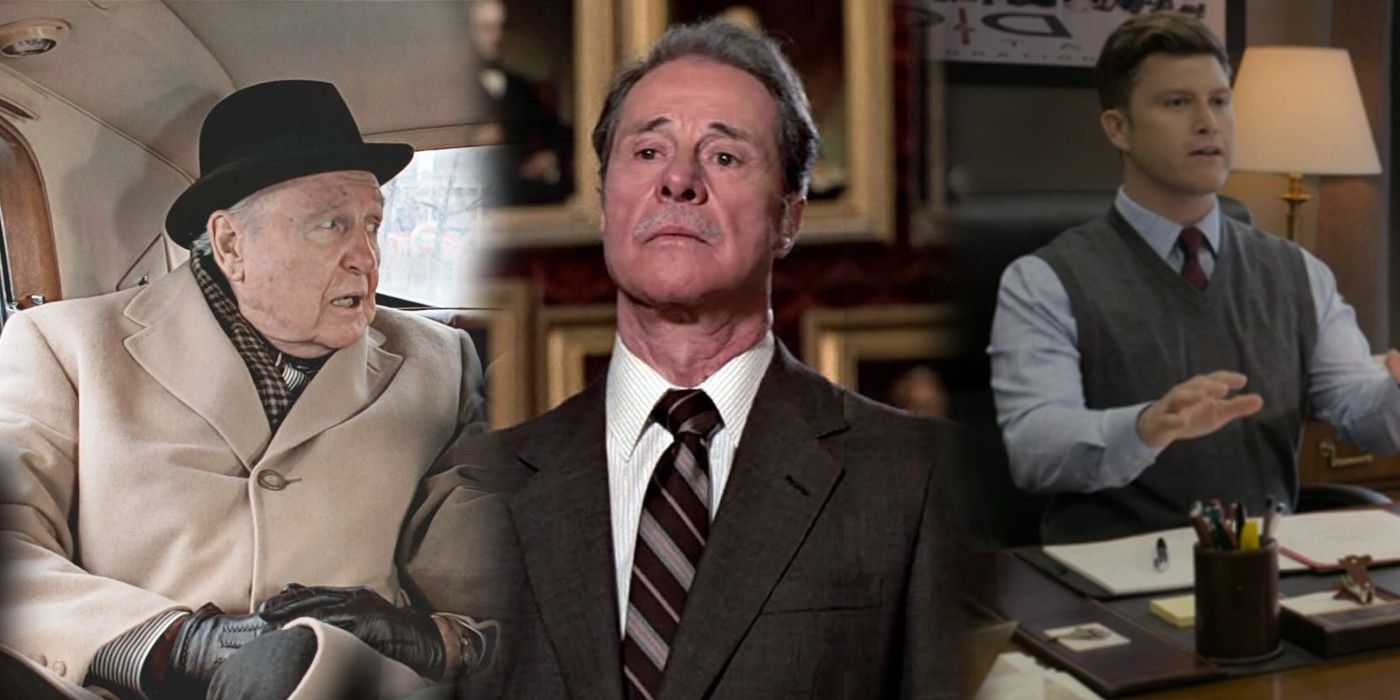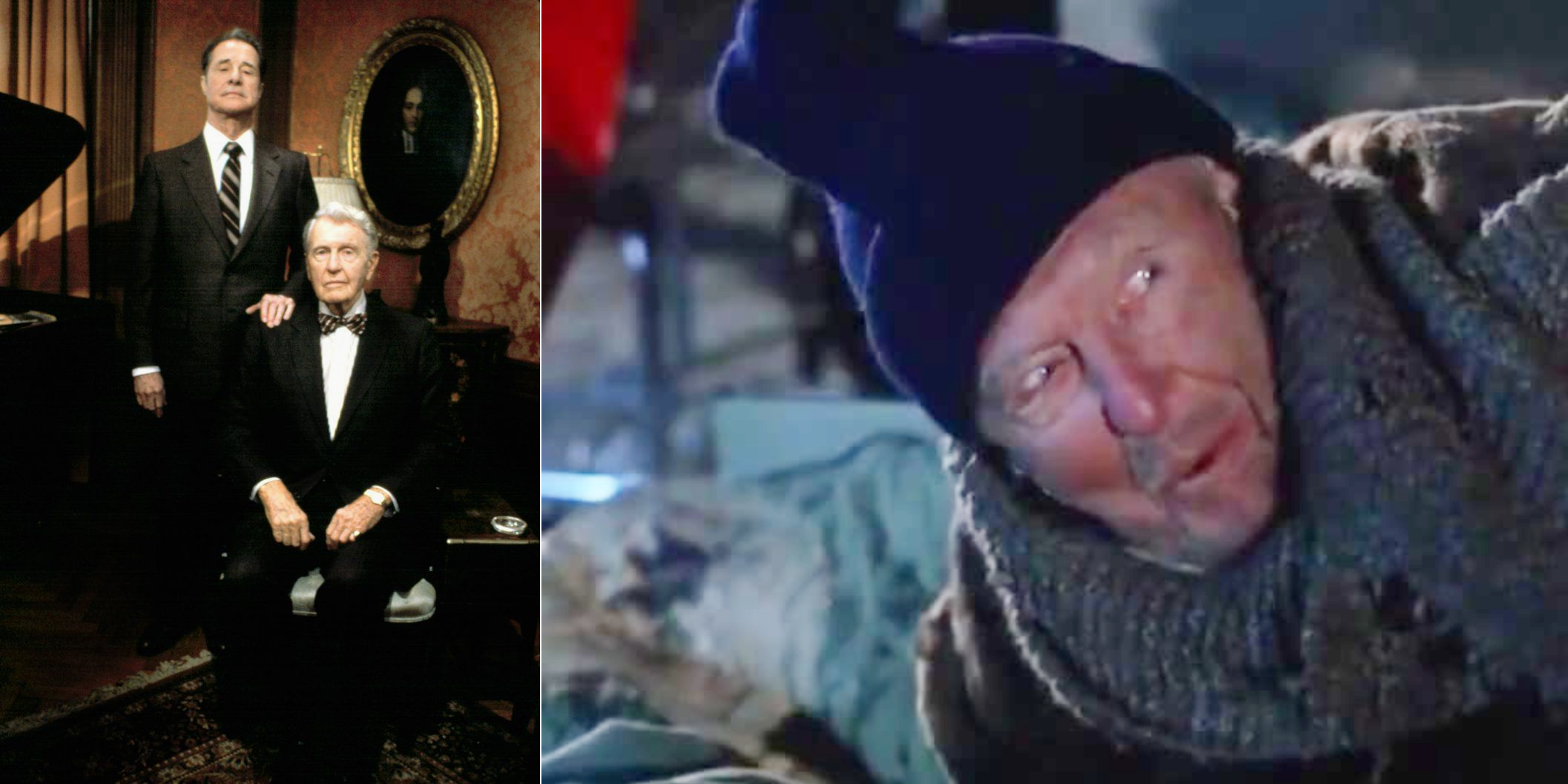
Directed by Craig Brewer and John Landis, Coming 2 America offers an update not only to Landis's 1988 classic Coming to America, but also to 1983's Trading Places, another John Landis film that stars Eddie Murphy. In order to update the fallen Duke & Duke empire last referenced in Coming to America, Landis reveals that between movies, the Duke brothers have once again risen to prominence, as indicated when Calvin (Colin Jost) introduces himself as "Mr. Duke" during a job interview with Lavelle Junson (Jermaine Fowler), the illegitimate son of Prince Akeem (Eddie Murphy).
In Trading Places, Eddie Murphy plays Billy Ray Valentine, an unsuccessful street hustler who crosses paths with Louis Winthorpe III (Dan Aykroyd), an elite, ivy-league snob who serves as managing director for the Duke & Duke brokerage firm. Unbeknownst to either character, Randolph Duke (Ralph Bellamy) and Mortimer Duke (Don Ameche) decide to run a social experiment to see if the two men's success levels are the result of innate ability or environmental factors. Over a $1 bet, the Duke brothers ruin Winthorpe's credibility and hire Valentine for a high-paying executive role. Eventually, Winthorpe and Valentine unravel the scam and manage to run a counterattack on the brothers. The film closes with the Dukes effectively bankrupted. As Randolph Duke puts it, "We're ruined!"
1988's Coming to America pays homage to Trading Places with one sneaky sequence during which Prince Akeem and Lisa McDowell (Shari Headley) run across the Duke brothers — now ragged, penniless, and sleeping among piles of garbage. Always the good Samaritan, Akeem hands Mortimer a paper sack containing "pocket change." The money may not amount to much for the Prince of Zamunda, but it's a sum large enough to raise Mortimer's eyebrows. After surveying the donation, Randolph quips, "Mortimer, we're back!"

Coming 2 America implies that Akeem's initial donation was enough to save the wily Duke brothers from poverty. During his interview with Lavelle, Calvin Duke seems at first like he might be more compassionate than his forbears, since he at least asks to be identified informally by "Calvin." However, as Calvin's conversation with Lavelle advances, it becomes clear that Calvin's judgments, much like those of his grandfather and great uncle, are clouded by some troubling racial assumptions involving absent fathers and substance addiction. As if to underscore the character's prejudices, a framed oil painting of the Duke brothers hangs within Calvin's office. The interview closes with Calvin trying to justify his decision to wear Aladdin-inspired blackface to an office party: "There was blueface over the blackface!"
33 years after the original, 2021's Coming 2 America offers a rather complex update to two Eddie Murphy classics. Whereas Trading Places portrayed a rather bleak (and well-deserved) outcome for the Duke brothers, Coming to America opted for a softer treatment, as Akeem offers the Dukes with a chance at redemption, even though many viewers would likely place the brothers beyond hope of redemption. Coming 2 America seems to identify the Duke & Duke empire as an insidious and unstoppable force. Armed only with a relatively small envelope of cash from Akeem, the Dukes have risen to prominence yet again, and Calvin, their heir, is just as judgmental and over-privileged as they were. Although Jost's cameo involves some cringe-laugh moments, the scene feels more haunting and less comical than previous Duke cameos.
from ScreenRant - Feed https://ift.tt/3cgoP6a


0 Comments